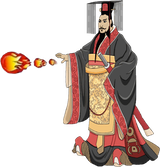(1) By reducing the worker’s need to the barest and most miserable level of physical subsistence, and by reducing his activity to the most abstract mechanical movement; thus he says: Man has no other need either of activity or of enjoyment. For he declares that this life, too, is human life and existence.
(2) By counting the most meagre form of life (existence) as the standard, indeed, as the general standard – general because it is applicable to the mass of men. He turns the worker into an insensible being lacking all needs, just as he changes his activity into a pure abstraction from all activity. To him, therefore, every luxury of the worker seems to be reprehensible, and everything that goes beyond the most abstract need – be it in the realm of passive enjoyment, or a manifestation of activity – seems to him a luxury. Political economy, this science of wealth, is therefore simultaneously the science of renunciation, of want, of saving and it actually reaches the point where it spares man the need of either fresh air or physical exercise. This science of marvellous industry is simultaneously the science of asceticism, and its true ideal is the ascetic but extortionate miser and the ascetic but productive slave. Its moral ideal is the worker who takes part of his wages to the savings-bank, and it has even found ready-made a servile art which embodies this pet idea: it has been presented, bathed in sentimentality, on the stage. Thus political economy – despite its worldly and voluptuous appearance – is a true moral science, the most moral of all the sciences. Self-renunciation, the renunciation of life and of all human needs, is its principal thesis. The less you eat, drink and buy books; the less you go to the theatre, the dance hall, the public house; the less you think, love, theorise, sing, paint, fence, etc., the more you save – the greater becomes your treasure which neither moths nor rust will devour – your capital. The less you are, the less you express your own life, the more you have, i.e., the greater is your alienated life, the greater is the store of your estranged being. Everything which the political economist takes from you in life and in humanity, he replaces for you in money and in wealth; and all the things which you cannot do, your money can do. It can eat and, drink, go to the dance hall and the theatre; it can travel, it can appropriate art, learning, the treasures of the past, political power – all this it can appropriate for you – it can buy all this: it is true endowment. Yet being all this, it wants to do nothing but create itself, buy itself; for everything else is after all its servant, and when I have the master I have the servant and do not need his servant. All passions and all activity must therefore be submerged in avarice. The worker may only have enough for him to want to live, and may only want to live in order to have that.
https://www.marxists.org/archive/marx/works/1844/manuscripts/needs.htm




 is called Magic Treasures, clearly a nod to
is called Magic Treasures, clearly a nod to  with it's capitalist top hat and rabbits (Watership Down).
with it's capitalist top hat and rabbits (Watership Down).
